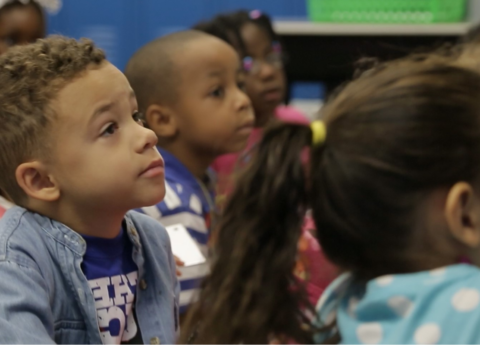Groundhog Day in 2020 is less than a week after Governor-Elect Beshear is due to lay out his budget proposal to the General Assembly. Shortly after, the legislature will begin crafting the commonwealth’s spending plan for the next two years.
The timing is fitting. In the movie Groundhog Day, star Bill Murray is caught in a loop and doomed to repeat the same day over and over again. Faced with too few resources to spend across many important priorities, Kentucky’s decision makers have been living that film for over a decade now.
The emerging budget and revenue picture reflects the same severe lack of resources Kentucky has faced in every budget since at least 2008, when the Great Recession hit. The difference today is that we are now in the longest economic recovery on record, and most all other states are reinvesting in their schools, human services and more. But Kentucky is on the path to yet another round of budget reductions, unless more revenue is raised.
The consequences of our 20 rounds of budget cuts so far are deeply felt. We face a child welfare crisis, a funding gap between rich and poor school districts that approaches unconstitutional levels, rising tuition and student loan debt, huge pension liabilities and much more.
This time around, the issues we face are made worse by major tax changes enacted in the 2018 and 2019 sessions that result in less revenue for this budget — and even less in years to come.
In 2018, the legislature passed a tax package that shifts the responsibility of funding the budget away from higher income individuals and corporations to low- and middle-income Kentuckians. The shift was accomplished by reducing income taxes in favor of new consumption taxes. The General Assembly traded some of the robust revenue growth that comes from taxing wealthy people’s investment portfolios, for example, for slow-growing taxes on purchases like cigarettes, bowling and pet grooming. Predictably, this shift is leading to a reduction in revenue growth.
Although that change is a bad trade-off for our future, at least the bill was designed to patch the budget with $200 million initially. But the legislature followed up in 2019 with an omnibus bill of tax cuts that will cost $110 million annually — an amount that will grow to $154 million in just a few years. The biggest change eliminated the bank franchise tax in favor of a lower corporate income tax— including for giants like J. P. Morgan Chase and PNC — even though banks are seeing record profits. It also provided complex corporate tax breaks and widened loopholes that allow businesses to hide money in offshore tax havens. The bill exempted university athletic events from sales taxes, and provided tax cuts to interests ranging from professional gamblers to house flippers.
Both the 2018 and 2019 tax bills were introduced and passed through both chambers of the legislature in a single day — leaving no opportunity for committee hearings, independent analysis or public input. While a few interests received a windfall, all Kentuckians will lose as the resources to support the budget become increasingly sparse.
Despite recent history, 2020 is an opportunity to start fresh. Members of both parties in the General Assembly are talking about a range of revenue options and drafting their own bills. Governor-Elect Beshear campaigned on the need to raise revenue for education and other areas, and will have a public platform with his budget proposal.
Bill Murray’s character in Groundhog Day eventually learns his lesson, breaks out of the loop and gets a fresh start on the rest of his life. Kentucky could, too, in 2020. But it will require working together to build a budget that raises new revenue, and putting a halt to new tax giveaways.
The things we do together — and that make us a commonwealth — can’t withstand another decade of cuts like the one we’ve just endured.
This column ran in the Northern Kentucky Tribune on December 8 and the Richmond Register on December 10, 2019.



